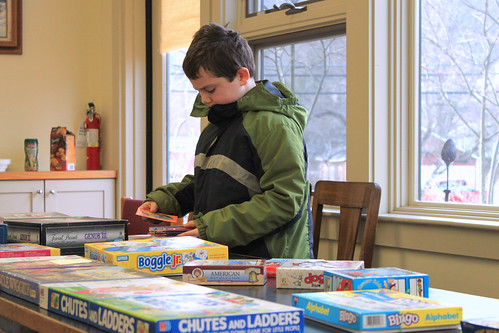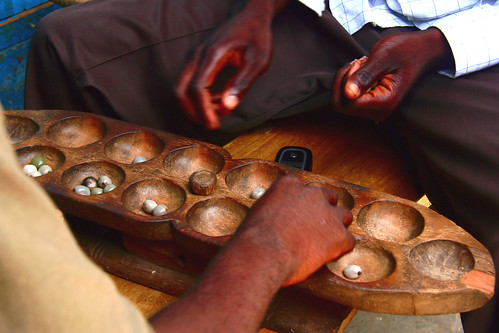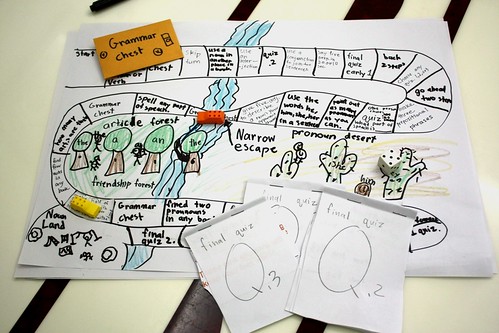Board Games Spark Play-Based Learning While Inspiring Critical Thinking & Problem Solving
Hilltown Families > Creative-Free Play > Games > Board Games

From classics to original creations, board games have much to offer regarding learning. Almost any game will encourage the development of critical thinking and problem-solving skills, and specific games help players to hone in on particular skills or topics. By exploring local resources for playing games, creating new games, and digging into the history of games, families can maximize the educational potential of a great family pastime!
Dating back to the Victorian era, board games as we know them have been a popular form of entertainment for close to two centuries (though their roots stretch even further back in time). Sometimes seen these days as a low-tech version of computer-based games, board games have lots to offer within the realms of both entertainment and education. In addition to providing an exciting and engaging screen-free gaming experience, board games can encourage the development of essential thinking skills, as well as important content-area knowledge. From basic math skills to world geography, board games have much to offer – especially when daylight hours are short!
The benefits of board game play are myriad and range from the development of motor skills to gain an understanding of basic economics. Accessible to players of all ages, board games addressing almost every possible skill and topic exist. The benefits depend on the game played, of course, but at the very least, most games promote critical thinking and problem-solving skills, and support players in learning to communicate about their understanding (or lack thereof) of game play and their feelings about the outcome of a game. Board games are especially helpful in teaching the idea of fairness to young players, who might struggle with losing but can learn to understand that the context in which they lost is one that is fair and is, perhaps, dependent upon chance.

Explorations of board games begin, of course, with playtime. Families can dig through their own collections to search for favorites, or diversify by exploring new game structures and themes. Many libraries have board game collections available for patrons to try out (see list below), and some libraries even allow board games to be borrowed and taken home – check with your local librarian to find out whether borrow-able games are easily accessible to you. To find a game that matches with specific skills and/or topics, try the Center for Games and Learning’s Games List, which can be searched and filtered based on type and ability. While the games list is not exhaustive, it offers a quick and simple means of finding games to match specific needs or interests.
In addition to supporting the development of necessary academic and thinking skills, board games can serve for older learners as a lens through which to explore more complex topics. Teens can, for example, learn about the inner workings of cooperatives while learning the value of cooperation by playing The Toolbox for Education and Social Action’s locally-created Co-Opoly: The Game of Cooperatives.
Alongside the embedded learning offered by the actual playing of educational board games, players can learn from games by exploring the evolution of popular games and by learning about the roots of games. A simple internet search can turn up pictures of boards and boxes from favorite games like Chutes and Ladders, Twister, and Clue can reveal much about the games’ history and how American culture has changed since they were introduced.

Learning about the roots of games like mancala (from Africa) or dominoes (from Italy) can help players to understand the culture and historical context in which they were developed. Information about the history and development of many games – board and otherwise – can be found at the Elliot Avedon Virtual Museum of Games – an online resource offering a wealth of information.

Another way to learn through the study of board games is by making homemade board games. Families can create games to exercise creativity, share their knowledge about a specific subject, or to better understand the mechanics of game play on any level. By using a template, modeling a familiar game, or creating an all-new structure, families can create their very own unique games that speak to family values, shared experiences, or common interests. Games can even be created as gifts, and game-making is an activity that easily adapts itself to match the interests and skills of those participating.
 Hilltown Families
Hilltown Families 




























